

Monique GoyensDirector General

Örjan BrinkmanPresident
According to estimates there will be 75 billion connected devices globally in 2025. Connected devices could bring huge potential advances, for instance making services more convenient, fixing products remotely or putting more responsive products on the market. However, they also carry risks such as 24/7 surveillance of citizens, raise complex liability questions when a self-driving car causes an accident and carry risks of remote control (for example, electricity being cut off from a distance).
As BEUC we are acting on different levels to prepare for this connected future. Our member organisations carry out tests in order to give guidance to consumers who want to purchase a connected device. Results show that some of the connected products which hit the market still pose a massive security risk. Unfortunately, children’s products were among those who were riskier than ‘smart’.
Forbrukerrådet from Norway showed that strangers can seize control of smart children watches and use them to track and eavesdrop on children. Which? from the UK revealed that it was very easy to connect to a ‘smart’ toy to send a message to a child. Test-Achats/Test-Aankoop from Belgium tested smart TVs and found that they collect a large amount of personal data which they subsequently share with numerous third parties (without the consumer knowing).
In November, BEUC organised an exciting conference in Brussels about the Internet of Things. It zoomed in on the areas of privacy, competition, consumer rights, contracts, safety and cybersecurity. The conference also saw the launch of recommendations for the Internet of Things – recommendations which were jointly developed by BEUC, Consumers International, the consumer voice in standardisation ANEC and ICRT (International Consumer Research and Testing).
The Internet of Things, artificial intelligence, connected products and cybersecurity are topics we will continue to play a lead role at in the years to come, through our members at national and in the EU decision-making process. Consumers are eager to take part in a digital and connected future – but they want this future to be a safe one. BEUC and its members will be on their side along the way.
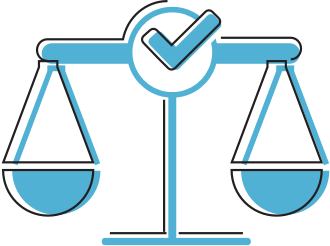
In February, the EU adopted a law that allows consumers to access their online subscriptions when traveling in the EU (as of April 2018). This means that movies, sports, music, games and e-books now travel with consumers across the EU.
When abroad, consumers are now able to call with their mobile phones, send messages and use the internet with no fear of price hikes. Following a major BEUC survey in 2003 about the costs of mobile roaming, the EU decided to intervene. Roaming prices fell in the following years, and finally became history in 2017.
Consumers will be better informed about how much energy their appliances consume, thanks to a simplified A-G Energy Label. After the A+, A++ and A+++ categories muddled the clear ‘buy A’ message of the original labelling scale: without this clarity, consumers are less motivated to opt for the top-class appliance. EU institutions have now agreed to revert to a closed A-G scale on the label, which should be rolled out over the next couple of years.
A new EU law on medical devices requires better product traceability, stronger post-market surveillance and more consumer information.
A new EU law will – as of April 2018 – oblige food manufacturers, food shops, restaurants and fast-food chains to reduce levels of acrylamide, a cancer-causing contaminant. This chemical is present in products such as chips, crisps, bread, biscuits and coffee.
In the wake of the Dieselgate emissions scandal, an EU reform will – as of September 2020 – improve the flawed system for testing cars. A major stride forward is the minimum target for how many cars EU countries ought to check. There should also be more European oversight over the entire approval procedure. For example, the EU will be able to audit the work of national authorities, to carry out its own inspections and fine manufacturers if they do not play by the rules. This should set us off on a road towards a Europe where all consumers enjoy the same level of protection.
Last June, the European Commission published its ‘fitness check’ of the EU Ecolabel – a scheme that helps consumers to make environmentally-friendly shopping choices. The Commission emphasised that the Ecolabel is a win-win-win for the economy, consumers and the environment, and deserves to appear on more products. BEUC’s activities have made an important contribution to this positive outcome.
In December, new rules entered into force for how public authorities should work together to protect consumers from rogue traders, particularly in online cross-border situations. These rules are called the Consumer Protection Cooperation Regulation. If the same malpractice affects consumers in several countries, actions by authorities will ensure that they are all equally protected. Moreover, consumer groups – such as BEUC’s member organisations – are now able to alert national authorities about possible illegal activities. As a result, situations negatively affecting consumers should be resolved better and faster.
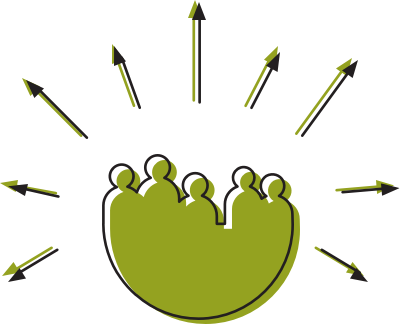
In its ‘fitness check’ of EU consumer law, known as REFIT, the European Commission found that although existing EU consumer rules are generally fit for purpose, they are insufficiently enforced. As part of a stakeholder group, BEUC and some of our members emphasised that improved action against unfair business practices would make consumers feel more secure and confident in the Single Market. The results of this fitness check will culminate in the Commission 2018 New Deal for Consumers. This deal aims to give consumers new tools to defend their rights, for example through a collective redress scheme.
We are increasingly involved in EU-level competition cases, as anti-competitive behaviour by companies negatively impacts consumers. A prime example is Google, whose dominance in one market (search engines) has pushed away its competitors in another market (comparison websites). This culminated in the European Commission fining Google €2.42 billion. Another example is Aspen Pharma: this company’s potential abuse of its dominant position has restricted consumer access to life-saving or life-prolonging cancer medicines.
Between September and November, our Superbug Tour put farming-related antibiotic resistance on the European map. Thirteen consumer groups from the BEUC network successively hosted the ‘superbug’ (a virtual, cartoon-style resistant bacterium) to inform consumers about antibiotic use in farm animals in their country and the link with antibiotic resistance. Our campaign culminated with press work during the run-up to European Antibiotic Awareness Day (November 18th).
ATMs and payment terminals abroad and online often present consumers with a dilemma: is it better to pay or withdraw money in their home currency or in the local currency? Most people logically opt to pay in the currency they’re used to, but this is actually a scam as they end up paying more. Our infographic explained how the scam works. The European Commission decided to tackle the issue in 2018.
Global e-commerce sales are expected to reach US$4 trillion in 2020, up from $1.6 trillion in 2016. Online sales in the EU are seeing similar growth rates. But consumer trust in the market outside the EU remains low. To find out why, BEUC and German consumer group Verbraucherzentrale Bundesverband (vzbv) commissioned an analysis of EU consumer experiences when shopping in the global online marketplace. The study highlights that consumers: a) lack essential information at the pre-purchase stage, and b) lack accessible means of redress when something goes wrong.
Connected devices and the Internet of Things (IoT) have huge potential: for instance by making services more convenient, fixing products remotely and putting more responsive products on the market. They also carry risks however, such as the 24/7 surveillance of citizens and complex liability questions. Norwegian consumer group Forbrukerrådet pointed out that strangers can gain control of children’s smartwatches for the purpose of tracking and eavesdropping. To respond to these risks, BEUC, in cooperation with our sister organisations ANEC, Consumers International and ICRT, launched a set of principles aimed at creating a safe and trustworthy IoT environment.
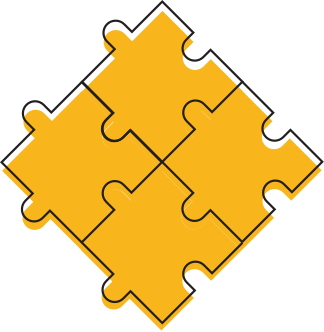
In March, at the kick-off of the European Parliament debate on the main energy issues for consumers, we discussed what’s hot and what’s not. The conference, which was hosted by MEP Jeppe Kofod (S&D, Denmark), gathered more than 100 participants for a dialogue on what needs to happen in order to make the clean energy package work for consumers. Speakers included Commission representatives, Members of the European Parliament, industry associations and several consumer organisations.
In April, we organised a breakfast debate with the European Broadcasting Union (EBU) in Strasbourg. We met with Vice-President Ansip and other decision-makers, urging them to allow people to enjoy more TV and radio programmes from across Europe. This can be done through new copyright licensing rules that meet the needs of the Digital Single Market.
In May, we teamed up with UK consumer group Which? for a conference on consumers in the Brexit process. Hosted in London, the half-day event included special sessions on food, financial services and consumer rights. The conference built on a paper – jointly produced by all BEUC members – on how to protect the interests of EU and UK consumers in the Brexit negotiations.
In October, BEUC, the European Financial Inclusion Network (EFIN) and the European Credit Institute (ECRI) joined forces to explore the risks and benefits of digital innovation for financial inclusion. Our conference, titled Big data and FinTech: A solution to financial exclusion?, was held in Brussels and attended by 200 people.
In November, we drew a full house for a discussion on the potential and challenges of connected devices and the Internet of Things (IoT). The speakers and participants came from European Union institutions, the consumer world, national authorities and academia.
In February, we received this EU award for NGOs for the campaign on antibiotic resistance we spearheaded from 2014 to 2016. Our campaign raised awareness on how the misuse and overuse of antibiotics in livestock impacts human health.
In April, we were at the International Consumer Protection Enforcement (ICPEN) network meeting. In May, we attended the first meeting of the European Data Protection Supervisor’s (EDPS) Big Data and Digital Clearing House.
In 2017, we became a member of ENISA’s permanent stakeholder group. This is a very important opportunity for European consumer groups to step up efforts to protect consumers against cybersecurity attacks and flaws in connected devices.
BEUC and several national consumer groups have become members of the European Commission’s expert group on applying the General Data Protection Regulation (GDPR). This will allow us to share experiences and issues faced by consumers.

More and more electricity is being produced from renewable sources like wind and sun. These sources are variable: for example, we might not be at home to consume all the electricity produced by solar panels at midday when the sun shines the most. Making consumption flexible would keep prices under control: this is called ‘demand-side flexibility’.
BEUC wants consumers to benefit from this flexibility, and we have made recommendations to the EU institutions to this end. Member States have reflected our suggestions through the introduction of clauses that help consumers to engage with new electricity service providers (aggregators) in terms of switching and termination fees. Several MEPs across different political groups echoed our calls in the European Parliament. Their comments reflect the need to ensure that the benefits of demand-side flexibility will be passed on to consumers, and that consumers’ rights are safeguarded.
We have been pressuring EU institutions to bring about policies that govern hormone-disrupting chemicals – also known as endocrine disruptors (EDCs) – and to counter industry influence and delaying tactics. Our flagship action urging the European Parliament to reject the Commission’s proposed definition of EDCs succeeded on 4 October. Parliament thus sent a strong message that the EU can do much better in protecting consumers against these chemicals.
Our ongoing work on mobility strives for a future where consumers can choose from a wide range of affordable, clean and safe cars. To get there, we influenced the EU’s reform of the flawed system for approving new types of cars. This led to more EU oversight over national car tests, which should help avoid another diesel emissions scandal. At the same time, the EU made its first steps towards setting CO2 targets for the 2020s. We used this as an opportunity to highlight the lack of showroom availability of low carbon cars, such as electric ones. Beyond legislation, we raised awareness on the consumer policy implications of the rise in connected and autonomous cars. For example, what does this rise mean for product liability and, therefore, motor insurance?
Our campaign in March highlighted the presence of fluorinated compounds in fast-food packaging across Europe. This was a joint effort with national consumer groups and the International Consumer Research & Testing consortium. The campaign combined professional laboratory tests carried out by consumer groups in Denmark and Italy with BEUC’s advocacy aimed at European decision makers. To illustrate: Danish consumer group Forbrugerrådet Tænk found that 4 out of 13 types of paper packaging contained fluorinated substances in quantities significantly higher than the recommended limit.
In September, we launched the CLEAR 2.0 project with seven other national consumer groups. The initiative enables ‘Consumers to Learn about, Engage with, and Adopt Renewables’, hence the acronym. CLEAR 2.0 builds on a project run between 2014 and 2017 that led to over 27,000 photovoltaic installations. It also resulted in over €196 million in renewable investments, which would be enough to supply every household in Andorra.
In this project, BEUC’s role is to help shape EU policies that spur the consumer uptake of renewable energy. For example, we teamed up with the International Union of Tenants (IUT) to emphasise the problem that tenants are excluded from policies aimed at facilitating the self-generation of solar electricity. In 2018, CLEAR 2.0 will carry the baton further.
We continued our capacity-building activities for consumer groups and all others working in the consumer field. BEUC spurred many activities that boosted the skills, tools and knowledge of consumer professionals. We did so through trainings, e-learnings, developing resources and hosting local courses and networking opportunities across our continent. To give a sense of the breadth of this platform: The e-learnings included ones on consumer law, energy, financial services, telecommunications and digital services.
BEUC coordinates Consumer Law Ready, which aims to boost the consumer law competencies of micro, small and medium-sized enterprises (SMEs) in the EU. To this end, training material has been developed in all EU languages. The materials consist of notebooks and online learning material such as videos and quizzes. Topics covered include pre-contractual information requirements, rights of withdrawal for distance and off-premises contracts, remedies for defective products, unfair commercial practices and unfair contract terms, Alternative Dispute Resolution (ADR) and the Online Dispute Resolution (ODR) platform. Trainers were instructed to give classes to SMEs in all EU Member States. The project will help SMEs to understand their legal obligations so that they can improve relations with their customers. BEUC coordinates this project together with Eurochambres and UEAPME (the European Association of Craft, Small and Medium-sized Enterprises).
In 2017, we celebrated the 25th anniversary of the EU Ecolabel by contributing to various activities organised by the European Commission. This anniversary provided an occasion to raise awareness among Member States and the Commission on the need to scale up efforts to familiarise both consumers and producers with the label.
To establish consumer trust for the label, we continually strive to ensure that the EU flower is only displayed on products of environmental excellence. In 2017, BEUC succeeded in toughening the energy efficiency requirements for televisions.
Consumers across Europe often struggle to access the medicines they need; they may be too expensive or unavailable. Our project on pharmaceuticals aims to ensure that drugs remain affordable and available to the public. BEUC’s request for stronger action on this point was reflected in the decision taken by eight national health ministries to launch a cooperation to improve patients’ access to new and innovative medicines, and to support the sustainability of their health systems.

BEUC was quoted over 6,500 times last year in media across Europe and beyond, including major outlets such as the Financial Times, Süddeutsche Zeitung, Reuters and Politico.
We received more than 400 general press requests, and were interviewed over 70 times.
BEUC and various national consumer groups published 27 blogs across all of our policy priorities on the Consumer Corner.
Together with thirteen consumer groups from the BEUC network we hosted the ‘superbug’ (a virtual, cartoon-style resistant bacterium) to inform consumers about antibiotic use in farm animals and the link with antibiotic resistance. People could follow the route of the superbug on www.superbugtour.eu
We posted 1,573 messages on Twitter, we have reached more than 8,500 Twitter followersand 1,345 LinkedIn subscribers.
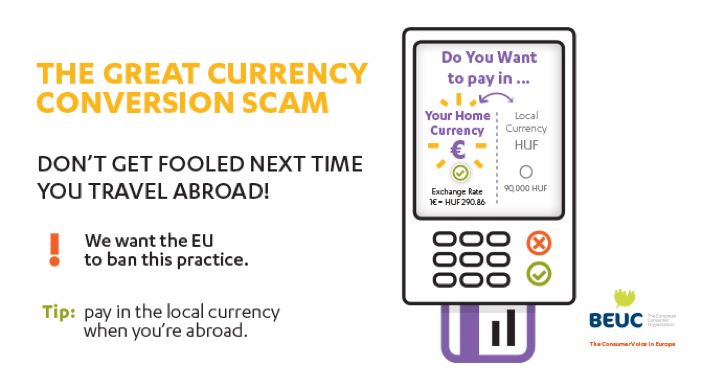
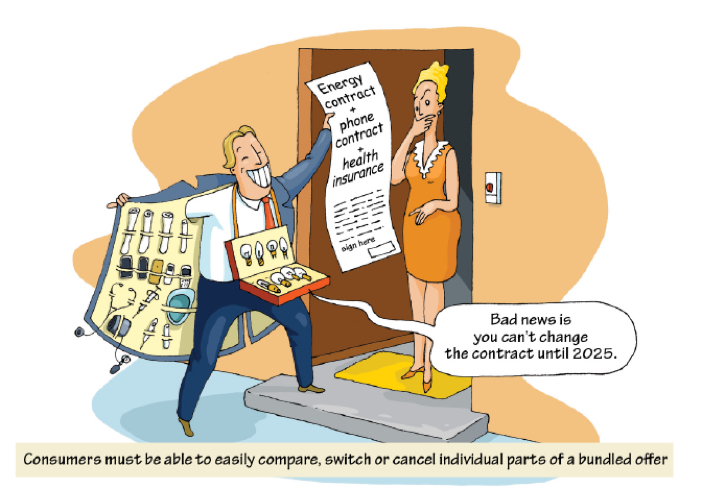
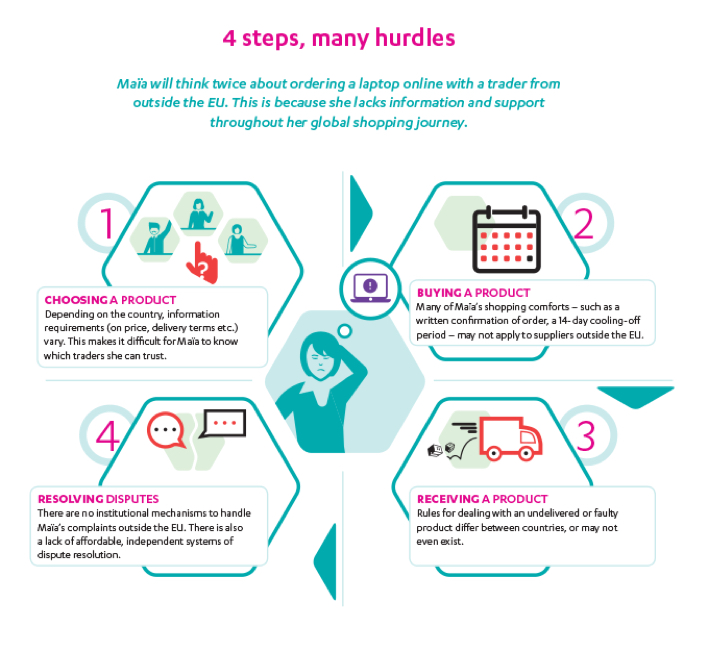

It is our policy to seek funding in priority areas, identified by our members as important for consumers. This funding can be either unrestricted (to support our core work) or tied to a specific project or programme. All potential funders are carefully vetted through our due diligence process to ensure that they align with our goals and do not threaten our integrity and independence.
Our income in 2017 was 4,892,017 EUR. This includes:
| Resources 2017 | (in euros) | Expenditure 2017 | (in euros) |
|---|---|---|---|
| Membership Fees | 1,967,227 | Staff costs | 2,968,668 |
| EU Operating grant | 1,400,000 | Administrative costs | 595,930 |
| EU-funded projects | 1,034,837 | Activities | 382,428 |
| Private resources | 376,264 | EU-funded projects | 867,72 |
| Other resources | 113,689 | ||
| Total resources | 4,892,017 | Total expenditure | 4,814,753 |


We extend a very warm thank you to all the institutions, organisations and individuals that have demonstrated interest and supported our work through their contributions, ideas and knowledge.

Made by Exelmans Graphics